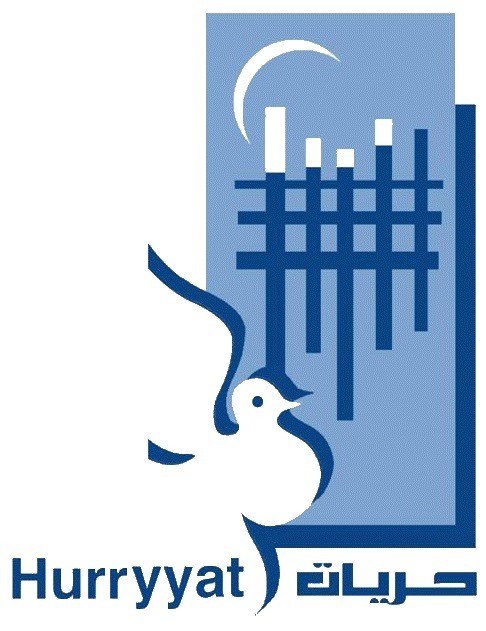The Center for Defense of Liberties and Civil Rights “Hurryyat” offers the project “Contributing to Providing Health Services to Ailing Prisoners in Israeli Prisons” funded by the Arab Fund for Economic and Social Development. This project comes as a patriotic and humanitarian initiative towards the sick prisoners in the Israeli prisons after the significant rise in their numbers. The statistics collected by “Hurryyat”, the Ministry of Detainees and Ex-Detainees, the Palestinian Prisoners’ Club and other human rights organizations, the number of sick prisoners in Israeli prisons have reached 1007 prisoners, both male and female, who suffer diverse health problems and diseases. 140 prisoners are suffering critical health conditions related to serious illnesses and the lack of proper health care. 40 prisoners are in a critical stage 19 of whom are permanent residents of the Ramlah Prison Clinic due to the deterioration of their health condition. 12 prisoners are suffering from cancer, and 11 are suffering partial or permanent paralysis while over 20 prisoners suffer psychological diseases and are put in solitary confinement.
The policy of medical negligence practiced by the Israeli Prison Services (IPS) against the prisoners is evident through the lack of proper treatment and procrastinating the execution of the needed operations, along with the lack of basic needs and standards that are not in harmony with international treaties. The absence of proper health care, the limited number of doctors and the absence of specialists, not to forget the quality of the limited food, the bad ventilation, the limited exposure to the sun, banning sport exercises, the suffocating over-crowded rooms, the limited space available for every prisoner, in addition to the policy of physical abuse and tear gas spraying are all part of a suppressing and subjugating policy committed against prisoners aggravating their circumstances, especially the suffering of sick prisoners.
it should be noted that 58 prisoners have lost their lives in prison due to the policy of medical negligence (according to statistics in 2016) while tens have died after their release.
Project Goals:
- The release of critical health cases before it is too late through lobbying, advocacy, and legal follow-up.
- Urge the implementation of the WHO resolution in improving the health and living conditions of prisoners and detainees, and the formation of an international medical committee to implement visits to Israeli prisons.
- Form specialized medical committees to visit sick prisoners, examine them and diagnose their health situation to provide the appropriate treatment.
- Improve the health circumstances in detention and imprisonment to suit international standards.
Project Activities:
- Prepare a list of specialist Palestinian doctors in cooperation in cooperation with the Palestinian Physicians Syndicate and the Ministry of Prisoners’ Affairs to be taken into consideration by the IPS.
- Specialists visiting the sick and ailing prisoners in Israeli prisons.
- Hurryyat’s attorney conducting visits to ailing prisoners in the Israeli Occupation Prisons.
- Update the data base of ailing prisoners including the exact names of prisoners, their illness, the number of critical and permanent health cases, the number of patients in the Ramlah Prison Clinic, and the treatment offered to each case through the visits of lawyers and Palestinian doctors.
- Enclose the number of deceased ex-prisoners who have died after their release due to the absence of proper treatment.
- Implement regular visits with the national committee supporting the affairs of ailing prisoners consisting of human rights organizations, medical organizations, and governmental bodies in the Palestinian Territories.
- Publish regular reports about ailing prisoners in Arabic and English.
- Conduct meetings with local and international medical and human rights organizations to form a network and establish relations that advocate the cause and suffering of ailing prisoners, thus organizing lobbying and advocacy campaigns for the release of very critical health cases while providing the proper treatment.
- Open a cyber page for the files of the sick and ailing prisoners to be updated regularly.
- Refer cases to the Supreme Court of Israel demanding the release of permanent and critical health cases to receive the appropriate treatment outside prison.
- Implement annual conferences to internationalize the cause of ailing prisoners and urge the immediate release of critical cases.
- Contact international organizations to support the cause of ailing prisoners and urge the execution of the WHO resolution to form an international specialized medical committee consisting of the ICRC and WHO to visit Israeli prisons and follow up the circumstances of sick prisoners.
- Organize national and international media campaigns demanding the release of sick prisoners in critical health conditions.
- Publish leaflets and brochures about the livelihood of sick prisoners in both Arabic and English.

